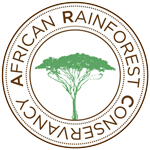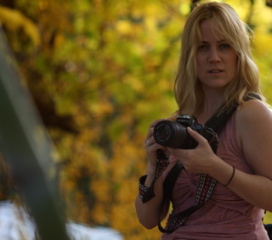As part of our Artist Spotlight series, we introduce you this month to Susanna Noel Jolly. Susanna is the Executive Vice President at LA-based TV series and film production company And Then Productions and has contributed her stunning photographs to Artists for Africa for the past four years. You can view our past Artist Spotlights of Jonnie Miles and Carlo Mari here and here.
Getting to Know You…
Of all the places you have traveled, which resonates the most with you?
This is a tough one to answer because I have taken something away from every place I have traveled to, but if I had to choose, I would say that Morocco holds a special place in my heart. I have traveled there a handful of times, and it has always been magical. There is the air of the unknowable and mystical, whether you are in the medina of Marrakech or in Merzouga, close to the border of Algeria, where they say the Saharan desert “begins”. But I was also so taken with the people, with their warm hospitality and grace.
What do you feel is the biggest challenge facing Africa today?
Boy, there are a lot of ways I would like to answer this one: — debt relief in pursuit of reducing poverty, the global community holding to greater accountability the African governmental leaders whose actions are clearly in contrast to the welfare of their people. BUT this has been on my mind recently — we could improve upon the coordination of efforts of so many well-intentioned people, groups or organizations that come in from outside of Africa to lift the continent to a better place, as they often run the danger of coming into conflict with each other. Or, in the long run, the effort itself is just not as effective as it was meant to be. This is not to discourage those who want to lend a helping hand, but, it is my belief that we should endeavor to pursue avenues that –at their very core — allow and empower Africans to help themselves. Finding more ways to provide greater access to education and health care for the populace is a great start – and there are so many who are already in pursuit of these goals and I applaud those efforts, as they are incredibly difficult to achieve and sustain. I have been so moved by meeting children all over Africa who, at incredibly young ages, want to go school, want to learn and are not able to because they cannot afford the fees to attend school.
To me, the key is empowering individuals, households, and larger communities to gain greater control over their lives and resources; to allow Africans –– not their governments — their dreams of the future, and for Africans to state the resources they believe they will need to realize them. Business and investment can also be used as a force for good in the country, rather than stripping the continent of its many resources. On the whole, we could do better by actively listening to Africans, and aiding, abetting, and protecting those efforts. In the end, Africa will be saved by the ingenuity and determination of its own people.
It often feels like one person can’t make a difference supporting the many environmental causes there are today. What small steps can people make to help conservation/preservation efforts in Africa or globally?
It is my belief that if people act with their heart and are moved by a specific conservation cause, that is where they should direct their efforts – whether that effort comes through their checkbook or through their own direct individual participation. There are a myriad of environmental causes, and it is all too easy to get overwhelmed by it and do nothing, which is the worst thing a motivated person can do. A person doesn’t have to swing at every pitch, and if s/he acts with their heart, where their interests truly lie, then those causes have better odds of sustaining their support. And, as they say – there are no small steps.
 What themes or personal experiences are most commonly evoked in your art?
What themes or personal experiences are most commonly evoked in your art?
Themes sort of creep up on me subconsciously but something I seem to go back to over and over is capturing moments of people and their distinct connection to their landscape or environment – whether it is a desert, a bustling marketplace, a crowd, etc. And sometimes it is simply my own connection to that landscape. Having been raised in the mountains of Tennessee and Virginia, my environs have always had a profound effect on me, so I suppose it is not a surprise that this shows up in my work on a continual basis. Another theme that crops up is a sense of finding and sustaining a home, and in many cases in Africa, being displaced from it. This was obviously at work during my time in Ghana with Liberian refugees, but also farmers being displaced by Mugabe’s regime in Zimbabwe, and my upcoming project – exploring the displacement of the Masai, who have continually suffered a loss of their nomadic way of life.
What are you currently working on?
My next project – still in its planning stages – is to go to northern Tanzania and explore what is happening to the Masai people, particularly in an area known as the Loliondo district, where there has been a land dispute. An Amercan-owned safari company, claiming to own the land, with strong ties to the Tanzanian government and local police, is fighting the local Masai people, who are no longer permitted to graze their cattle in their area. The bitter dispute has been rife with violence and arrests against the Masai, and rankled relationships between the different regional Masai tribes themselves. The situation has gone largely unreported in Western media.
How do you continue to stay inspired?
Staying inspired has never been a problem for me. There is much to do, and very little time to do it. My biggest problem is carving out enough time from my life in Los Angeles to pursue the stories I want to and giving them the time and attention that I believe they deserve.
What websites and blogs do you visit?
I am not much of a blog reader, but I am very much of a news hound so the websites I frequently tend to view are the New York Times, CNN, the Guardian, The Christian Science Monitor, et al.
What was the last book you read?
I wanted to read something of Mario Vargas Ilosa’s, whom I had never read and he had just won the Nobel Prize in Literature for his work, so I read The Bad Girl, which is a modern re-telling of Madame Bovary. Now I’m onto “Just Kids” by Patti Smith, which is about her hugely influential relationship with Robert Mapplethorpe.
What is playing on your iPod lately?
Whether this is the influence of Steve Jobs or not, I already owned the entire canon of the Beatles far before iTunes made it so accessible, and have been listening a lot to “Abbey Road” lately.


Leave A Comment